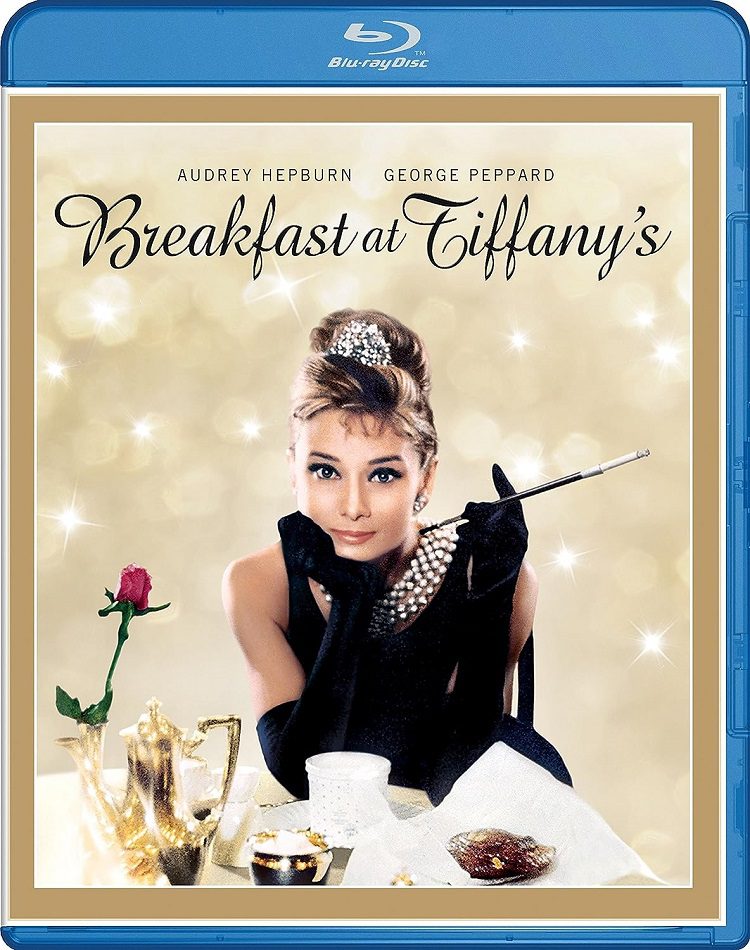
In 1995, the alternative rock band Deep Blue Something released their only hit song, “Breakfast at Tiffany’s”. I was in college at the time in Montgomery, Alabama, and it was all over the city. Playing on the radio, in all the restaurants, and all over the campus. One day, my friend Jenifer and I were singing along to the song and we came to the realization that neither of us had seen the Audrey Hepburn film of the song’s title. We scooted on over to the local video shop and rented up the VHS tape (wow, how anachronistic is that sentence?) and watched it in my dorm-room lobby. If I recall, we both kind of liked it (oh now, don’t pretend it’s not stuck in your head, too).
Breakfast at Tiffany’s was the first Audrey Hepburn movie I ever saw. It began a life long cinematic love affair. She has such poise, grace, talent, and beauty that I can never look away, which is why I was so excited when I heard that Fathom Events and TCM were putting Breakfast at Tiffany’s on the big screen once more.
Oddly enough, just hours before I received that announcement, my wife had randomly thrown the film on from her Netflix queue and we watched about half of it on my lunch break. It was hard not to finish it even though we knew we’d be seeing it in a real theater just days later.
Audrey Hepburn plays Holly Golightly, a free-spirited New York party girl. George Peppard is Paul Varjak, a promising young writer whose just moved into her building. The movie centers on their burgeoning relationship and the comic mishaps they get into along the way.
On its surface, the film is a lighthearted romantic comedy with a buoyant Harry Mancini score (featuring the now-standard “Moon River”) and Audrey Hepburn at her most chic. But just under that beautiful sheen lies a pretty cynical darkness.
Holly seems like a care-free lass about town, but she’s only about a half step above a prostitute. Nearly every night, she allows some rich man to take her out where she makes a living by asking for change for the powder room (which usually amounts to about $50, and gets another $50 for cab fare home). While not explicitly stated in the film, it’s certainly implied that in exchange for this she gives these men her body (although in a wonderful bit of feminism, the opening scene finds her being pursued by one of these men and she, in no uncertain terms, lets him know that he is not entitled to anything for his $50).
Fred has written one promising book of short stories, but nothing else in several years. The film finds him living as a “kept” man. He’s styled in nice suits, placed in a nicely furnished apartment, and has his wallet padded by a rich, married, older woman (Patricia Neal).
Both characters are lost, stuck in lives they don’t know how to get out of. Fred longs to write an important novel, but is so thoroughly pampered he can’t find the motivation to do the work. Holly plays at being a dreamer, happily existing in every new moment, but really she’s just scared of living. Together, they find sense of themselves.
All of this is wrapped up in a very light film filled with wild parties, witty repartee, and, of course, trips to Tiffany’s. The darker depths are hidden well enough behind a light, breezy direction.
I would be remiss to not touch on the film’s racism. Mickey Rooney plays a broadly stereotypical and highly caricatured Asian man. He’s the comic-relief neighbor who is always complaining about Holly’s noise-making and cracking his skull on a lamp. It is a performance that is as offensive as it is ridiculous. It should be noted that it has been disavowed by pretty much everyone involved with it. It’s likely that it will completely derail the film for many, but I was able to look past its (mercifully short) scenes and still enjoy the rest of the movie.
While walking towards the theater, my wife and I pondered whether the showing would be sold out. We were running a bit late and she was afraid we’d not find seats. I told her not to worry as I felt Breakfast at Tiffany’s was more iconic than beloved. More people know the iconic poster and “Moon River” than have actually seen the film.
That’s a shame as it really is a lovely film, despite its difficulties.